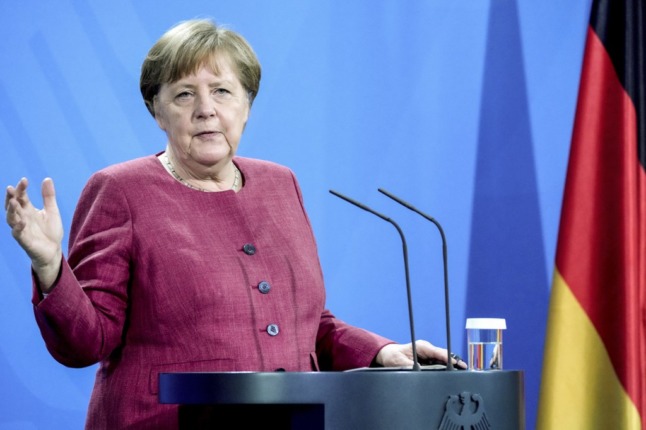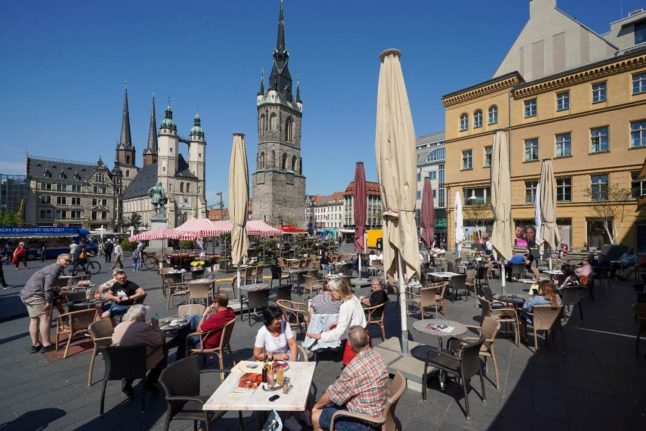Surveys have placed the extreme-right AfD neck-and-neck with Merkel’s Christian Democratic Union (CDU) in the eastern state of Saxony-Anhalt, with a recent poll by the Bild daily even predicting the anti-immigration party will – for the first time – win a regional vote.
Victory for the AfD would be a devastating blow for the conservatives just four months ahead of Germany’s national election on September 26th, and could further weaken the already fragile standing of Merkel’s would-be successor Armin Laschet.
“The CDU is in a relatively weak position in the polls, as is Laschet,” said political scientist Hajo Funke of Berlin’s Free University.
“If it turns out that the AfD is slightly stronger than the CDU on Sunday, then there could be debates about personnel in the CDU, and thus a weakening of the entire situation of the CDU,” Funke said.
Merkel’s party has been a dominant force in Saxony-Anhalt for decades, topping all but one edition of state elections there since reunification in
1990.
READ ALSO: Germany’s far-right AfD ahead in regional poll with anti-shutdown stance
In 2016, the CDU scooped 30 percent, forming a coalition with the Social Democrats (SPD) and Greens. The AfD won 24 percent.
But the conservatives have taken a hammering in the polls as Merkel prepares to bow out, hurt by anger over the government’s pandemic management and a corruption scandal involving shady coronavirus mask contracts.
They are also reeling from a very public tug of war for the post of chancellor candidate between CDU chief Laschet and Markus Soeder, head of the smaller Bavarian sister party CSU.
Laschet, who prevailed in that battle but has since suffered dismal public approval ratings, faces his first real test in Sunday’s election.
‘Rude awakening’
Even if the AfD wins the vote in Saxony-Anhalt, the party will not be able to govern as all the other parties have ruled out forming an alliance with it.
But a win for the far-right party would still be a “rude awakening” for the CDU, as Laschet put it during an appearance on the campaign trail in Magdeburg last week.

Although support nationally has stagnated at around 10 to 12 percent for the AfD in recent months, in Saxony-Anhalt – as in other former East German states – the party has long had a strong base of support.
Its recent move to style itself as the party bashing Merkel’s tough shutdown measures during the pandemic has also cemented its reputation as the anti-establishment party, attracting support beyond its core base of anti-immigration voters.
READ ALSO: Why are coronavirus figures so high in German regions with far-right leanings?
Losing to the AfD, whose leading candidate in the region is a relative unknown nationally, would be, as Spiegel magazine puts it, “a disaster” for
Laschet.
“Laschet urgently needs a success to rally the Union behind him for the national election campaign,” said the magazine.
“The last thing he would need is a renewed debate about the AfD within his party, which would become unstoppable in case of an election defeat in Saxony-Anhalt.”
READ ALSO: Meet Armin Laschet, the king of comebacks grasping for Merkel’s throne
‘Momentum from Berlin’
Meanwhile, the Greens, who are vying for top place nationally against Merkel’s conservatives, could also draw votes away from the CDU in
Saxony-Anhalt.
The party, which has traditionally struggled in the former East Germany, looks set to double its share of the vote in Saxony-Anhalt from 5 percent in 2016 to around 10 percent this time.
“It has been a very exciting election campaign for the Greens,” Sebastian Striegel, co-chair of the party in Sachsen-Anhalt, told AFP.
The party has benefited from “a lot of momentum from Berlin” with the nomination of chancellor candidate Annalena Baerbock, according to Striegel.
The latest survey for Der Spiegel of who Germans would like to see as their next chancellor has Baerbock in the lead on 25 percent, with Laschet lagging behind on 22 percent.
By Femke COLBORNE



 Please whitelist us to continue reading.
Please whitelist us to continue reading.
Member comments